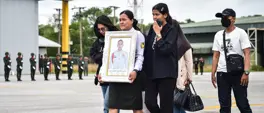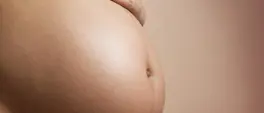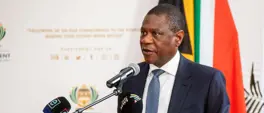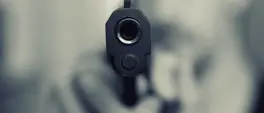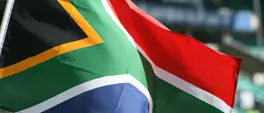Jamil F. Khan | Why critical thinking is a collective responsibility in an age of disinformation
Jamil F. Khan
3 June 2025 | 8:10What is known as science is also subject to the politics of power which has decided who gets remembered and credited, and who gets forgotten and erased.
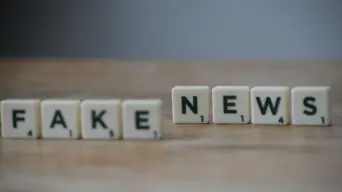
Picture: Pexels
As a resource, knowledge has been fought over for almost as long as humans have existed and those fights have had lasting consequences for how we understand our world and what we believe to be the facts of human life.
Though the knowledge being produced during any social period should always be held up to scrutiny, there are, by now, certain well-established and proven facts about how the world works. This knowledge, we have mostly agreed on and therefore co-constructed, giving everyone a role and responsibility in producing knowledge.
The element of trust has, however, been unfortunately abused throughout history, leading many to a skepticism about whether we can trust what we claim to know.
It is important to acknowledge how the trust of Black, Indigenous and other racially minoritised people, queer people, women and people with disabilities have been harmed and killed by institutions of knowledge in the name of science.
What is known as science is also subject to the politics of power, which has decided who gets remembered and credited, and who gets forgotten and erased.
The field of modern gynaecology was honed through non-consensual, unanaesthetised surgeries on enslaved Black women by J. Marrion Sims.
The Tuskegee Experiment killed over 100 Black men between 1932 and 1972, through a study that wanted to observe the effects of syphilis if left untreated.
The scientists led participants to believe that they would receive free medical care, while not informing them of their diagnosis and never telling the men that they would never be treated.
In South Africa, a secret chemical and biological warfare project was executed during apartheid with the expertise of scientists, such as Wouter Basson, who has been dubbed “Dr Death” in popular discourse.
These are but a few of the crimes committed in the name of science, particularly during times when the circulation and transmission of knowledge were so militantly guarded. Access to knowledge has always been a site of struggle, and though there have been betrayals, the general public has never been passive about it.
The current internet era we are in, where knowledge is so vastly available, presents us with a privilege but also a responsibility. We are accessing, sharing and questioning knowledge under the unique conditions of this era, which is what should inform our fight for its preservation.
Although there has always been a necessary struggle to encourage the uptake of new knowledge, through further research and observation, societies have worked with knowledge in pursuit of some form of truth – an element of sense-making that has come increasingly under threat in unprecedented ways.
To know what is true and what is not is often at the heart of our scuffles with knowledge. However, our doubts should not lead us to reject knowledge but inspire us to participate in producing more of it. That we have been betrayed before should not lead us to reject the truth-tellers in our society.
Beyond the knowledge of natural sciences, we have also always looked to the thinkers, philosophers, healers, artists, singers, and poets to tell us about the experience of humanity.
We have always looked to the special ways that words, sounds and images have revealed truths about our experiences that connect us to each other. We have engaged with talent as a conduit for knowledge.
What we know about the world and how it feels has sometimes been located in the tone of a vocalist we love. We have so many forms of knowledge available to us that we engage with all the time and through that engagement, we modify and circulate it.
We are living in a dangerous time, in which AI has the potential to completely rewrite reality. Fake news spreads so quickly and easily. Historical photographs are reconstructed to change their narrative, and the president of the USA can present false images of a purported white genocide in South Africa without fact-checking them first.
This is a consequence of a collective rejection of truth and a persecution of truth-tellers. Be they whistleblowers exposing corruption, musicians calling out a genocide, or critical scholars examining the history of gender, we all have a hand in protecting the truth.
We know the truth when we hear it, even if we don’t want to. We also know when our beliefs encourage the suffering of others, and that when we cling to such beliefs, we are betraying humanity.
While the pursuit of knowledge is commendable, we must also interrogate the purposes of the knowledge we pursue. When we reject existing knowledge and rubbish its facts, and thereby simply create knowledge that is not in consultation with existing knowledge, we create disinformation – another burden of our time amplified through the immediacy of social media.
Related to this, we must also acknowledge that what we know is not separated from our political motivations and the beliefs we have inherited from our various social contexts. So, when we endorse knowledge that furthers the persecution of others and reject knowledge that challenges the foundations of our privileges, we are answerable to our biases, which trouble our relationship with truth.
Everyone wants to feel heard, respected and valued for what they know. Those who have come to be recognised in this way have often earned such acclaim through the labour of their struggles with knowledge and their willingness to rethink things when new information comes to mind.
It is true, though, that some came to be recognised this way through deceit and theft, but what these people have in common is a place in the fight for preserving knowledge, which all of us have.
I can only hope that people who want to work with knowledge do it to improve lives and ease suffering for those most marginalised. Whatever the motivation, what knowledge requires of us is to earn it through the labour of critical thought. We have a collective task to do the work of shaping knowledge, and not rejecting it, for the benefit of all of us, past, present and future.
Jamil F. Khan is an author, doctoral critical diversity scholar, and research fellow at the Johannesburg Institute for Advanced Study.
Get the whole picture 💡
Take a look at the topic timeline for all related articles.






